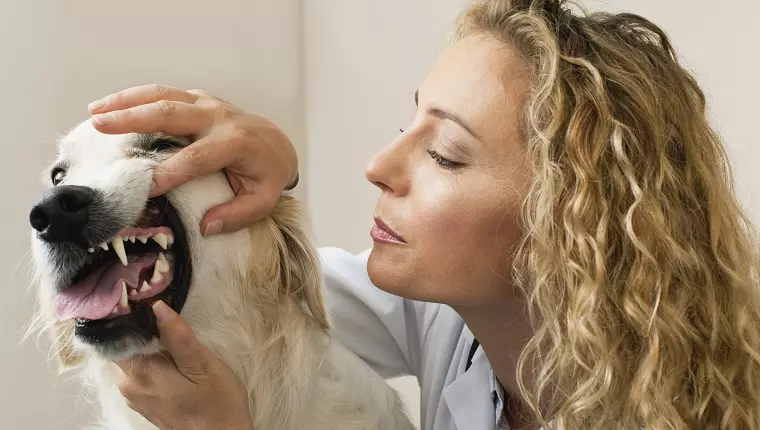Maintaining your dog’s dental health is not just about avoiding bad breath; it’s a vital component of their overall well-being. February being National Pet Dental Health Month serves as a critical reminder for pet owners to prioritize the dental care of their furry companions. The reality is that many pet owners overlook their pets’ oral hygiene. Alarmingly, studies indicate that up to 80% of adult dogs exhibit some form of oral disease, underscoring the need for increased awareness and action among pet owners.
Canine mouths are naturally conducive to bacteria proliferation; they provide a warm, moist environment rich in nutrients. While many of these bacteria are harmless and even beneficial, the situation can rapidly deteriorate. The formation of plaque and tartar can lead to a cascade of dental issues, propelling the growth of pathogenic bacterium that jeopardizes your pet’s health. Foul breath is often the first and most noticeable symptom of dental problems, but it is far from the only concern. Neglect in this area can ultimately pave the way to serious health complications, including heart, liver, and kidney diseases.
When microorganisms from periodontal disease leak into the bloodstream, they travel to critical organs, causing potential dysfunction and irreversible harm. The prevalence of dental problems can catch many pet owners off guard during routine veterinary checkups when they learn their dogs have severe periodontal issues. Often, these conditions come with pain, discomfort, and decreased quality of life for the pet, further emphasizing the importance of preventive measures and regular veterinary assessments.
Beyond bad breath, several signs can indicate dental problems in dogs. Look out for loose teeth, inflamed gums, and issues with chewing. If you observe any reluctance in your dog to eat, or if they exhibit signs of jaw discomfort, it may be time to consult your veterinarian. Regular dental examinations and cleanings should be part of your dog’s routine veterinary care, as early intervention can alleviate severe complications that may arise from untreated dental issues.
Perhaps one of the most compelling reasons to maintain a rigorous dental care routine is the direct correlation between oral health and longevity. As one veterinarian succinctly stated, the lifespan of a dog can vary significantly based on how well their teeth are cared for. A daily brushing regime can extend a dog’s life significantly, whereas neglect can lead to a marked decrease in health and life expectancy.
Starting a dental care routine as early as possible in your dog’s life is crucial. Familiarize them with the process to help minimize anxiety or fear that may arise when introducing tooth brushing. Many veterinarians are willing to provide guidance and can demonstrate best practices for brushing your dog’s teeth. Investing in tools designed specifically for canine use, such as soft-bristled brushes and dog-friendly toothpaste, is paramount. It is essential to avoid using human toothpaste, which can be harmful if ingested, as dogs require formulations that are safe for them to swallow.
If your dog is particularly resistant to traditional brushing methods, consider alternatives such as finger brushes or dental wipes. Start slowly, allowing your pet to get accustomed to the taste of toothpaste and the sensation of brushing. Employ positive reinforcement techniques, like praise and treats, to create a pleasant association with dental care.
In addition to daily brushing, consider incorporating other dental health aids. Chew toys, raw bones, and specially formulated dental treats can help reduce plaque buildup. Products like dental biscuits or treats designed to promote oral hygiene can complement your at-home regime, although one should remain mindful of caloric intake and overall dietary balance.
What you feed your dog plays a crucial role in their dental health as well. A meat-based diet can support good oral hygiene, as meat promotes a healthy mouth environment. Some dog foods are specifically formulated to assist with dental health, but always consult with your veterinarian for tailored dietary recommendations suited for your dog’s unique needs.
Dental health should never be an afterthought for any pet owner. As we know, prevention is always better than cure. By integrating regular dental checkups, at-home care, and appropriate nutrition into your routine, you can significantly enhance your dog’s quality of life. National Pet Dental Health Month may only be a month-long observance, but the commitment to your furry friend’s dental health should last all year long. Ensure that your dog enjoys not only a healthier mouth but also a happier, longer life.


Leave a Reply